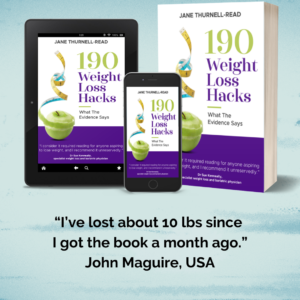If you can’t give up sugar, you may think you are doing the right thing by replacing it with artificial sweeteners. You could be wrong.
Do artificial sweeteners help you lose weight?
Most artificial sweeteners have zero or few calories, but this doesn’t mean they will help you lose weight.
Researchers from the University of Manitoba (Canada) published a study in the Canadian Medical Association Journal. They conducted a systematic review of 37 studies that followed over 400,000 people for an average of 10 years. Only seven of these studies were randomized controlled trials (the gold standard in clinical research), involving 1003 people followed for 6 months on average.
The trials did not show a consistent effect of artificial sweeteners on weight loss. In fact, almost the opposite. The longer observational studies showed a link between consumption of artificial sweeteners and relatively higher risks of weight gain and obesity, high blood pressure, diabetes, heart disease and other health issues.
Professor Ruopeng An of the University of Illinois (USA) examined the dietary habits of more than 22,000 U.S. adults. He found that diet-beverage consumers may compensate for the absence of calories in their drinks by eating extra food that is loaded with sugar, sodium, fat and cholesterol.
An said:
“It may be that people who consume diet beverages feel justified in eating more, so they reach for a muffin or a bag of chips … Or perhaps, in order to feel satisfied, they feel compelled to eat more of these high-calorie foods.”
James Brown, Associate Professor in Biology and Biomedical Science, Aston University (UK) says:
“Based on current evidence, it’s generally agreed that using artificial sweeteners is associated with increased body weight – though researchers aren’t quite certain whether sweeteners directly cause this to happen.”
Researcher Dr. Ryan Zarychanski, Assistant Professor, Rady Faculty of Health Sciences, University of Manitoba said:
“We found that data from clinical trials do not clearly support the intended benefits of artificial sweeteners for weight management.”
Do artificial sweeteners affect the gut microbiome?
There is more and more evidence that the gut microbiome is important to our health and well-being. While researching my book “190 Weight Loss Hacks: Wat the Evidence Says”, I found that the gut microbiome can have a big effect on what we weigh too.
Science writer Leanne Edermaniger says:
“There is a lot of research that shows long-term weight gain is associated with a gut microbiome that lacks diversity.”
A study by Michelle D. Pang and colleagues suggested that artificial sweeteners may alter the gut biome in a way that can lead to dysbiosis, with fewer healthy gut bacteria.
Rather than using artificial sweeteners increase your intake of veggies and beans to increase your gut diversity. This can potentially help you lose weight.
Can artificial sweeteners create food cravings?
Belinda Lennerz (Boston Childrens Hospital, USA) and Jochen K. Lennerz (Massachusetts General Hospital, USA) write in the academic journal Clinical Chemistry:
“… artificial sweeteners have been shown to alter food reward and food cravings in some but not all studies.”
Susan E. Swithers of Purdue University, USA argues that diet soda may interfere with the learned relationships between sweet tastes and feelings of fulness, because diet soda provides the sweetness without a later sense of fulness. This may mean that when foods/drinks sweetened with sucrose or glucose are eaten, the body does not register the fullness from them, and so the person consumes more. She says:
“… negative consequences of ASB [artificially sweetened beverages] should not be interpreted to suggest that sugars should be consumed in preference to artificial sweeteners. Instead, consumption of artificial sweeteners may exacerbate the negative effects of sugars by reducing the ability to predict the consequences of consuming sugars reliably and/or by altering cognitive processes that lead to overconsumption.”
Are artificial sweeteners bad for your health?
James Brown, Associate Professor in Biology and Biomedical Science, Aston University (UK) says:
“Sweeteners have long been suggested to be bad for our health. Studies have linked consuming too many sweeteners with conditions such as obesity, type 2 diabetes and cardiovascular disease.”
He goes on to say that there is a slight increase in cancers in people who consume the least amount of sweeteners compared with those who consume the most.
Another study put it much more strongly than this. Researchers analysed data from 102,865 French adults participating in the NutriNet-Santé study. The researchers found that enrollees consuming larger quantities of artificial sweeteners, particularly aspartame and acesulfame-K, had a higher risk of overall cancer than non-consumers. The researchers say:
“Our findings do not support the use of artificial sweeteners as safe alternatives for sugar in foods or beverages”
Artificial sweeteners versus sugar
So, research suggests neither is good for us. Don’t think that replacing sugar with artificial sweeteners is necessarily better for you.
Consider using these tips:
- Gladly wean yourself off high-sugar products.
- Increase the number of veggies you eat to help support the good bacteria in your gut.
- If you can’t give up sugar, try Stevia or xylitol, which appear to have fewer problems associated with them.
The evidence for artificial sweeteners being beneficial for weight loss is not there. There is increasing evidence that they may be harmful to your overall health.
Try to wean yourself off sugar rather than switching to sweeteners or sugar-free drinks. If you’re already using artificial sweeteners and diet drinks work to reduce or eliminate them.



